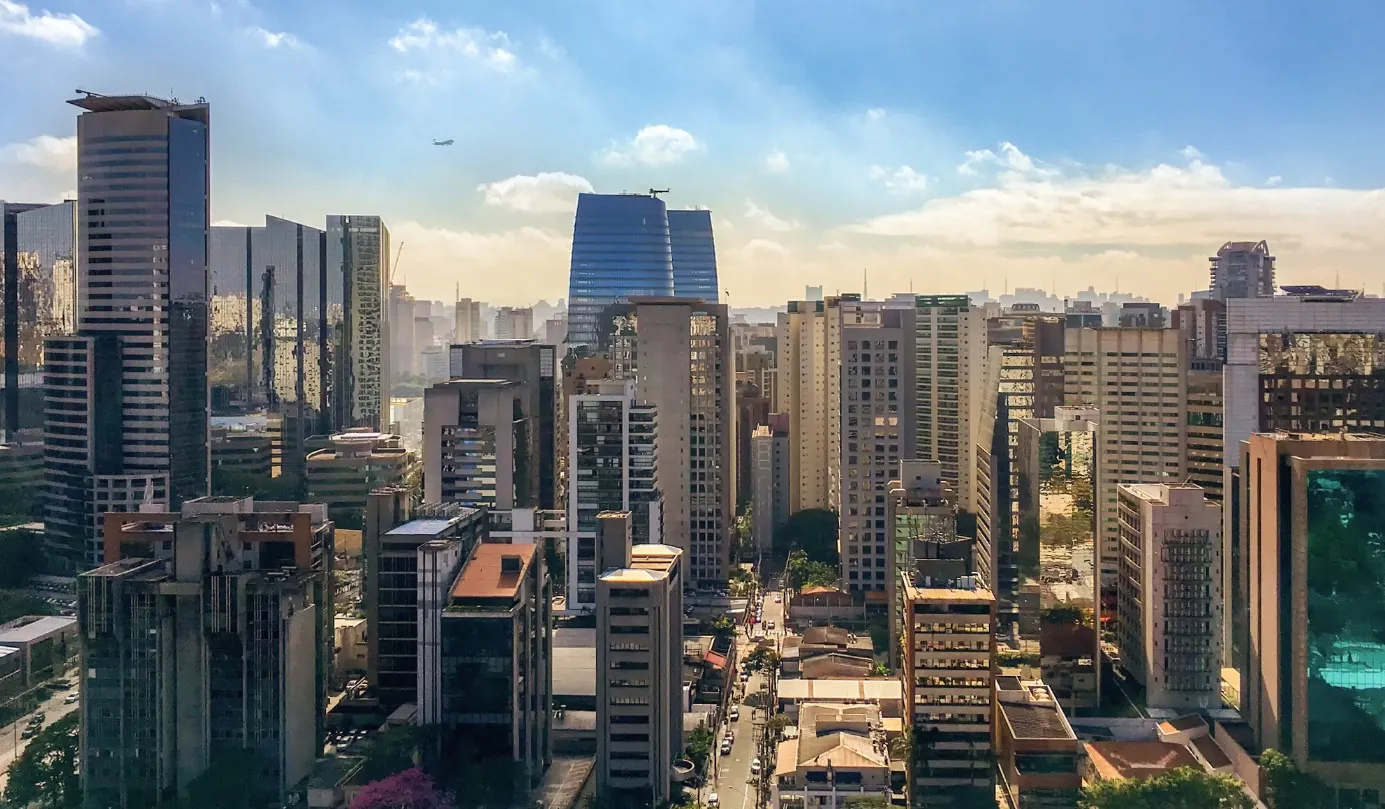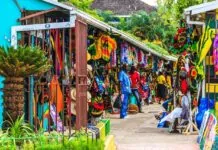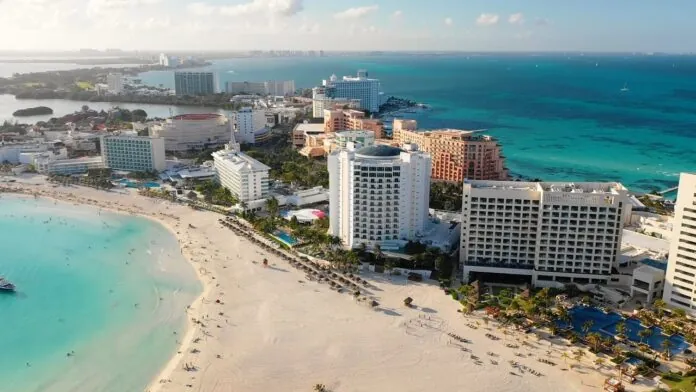
Cancun draws millions with its beaches, resorts, and nightlife. But safety questions keep coming.
Headlines mention crime. Social media raises alarm over scams and police stops. Government advisories shift between caution and reassurance.
So, where does that leave tourists in 2025?
The answer is not one-size-fits-all. Some parts of Cancun remain tightly secured with constant patrols and tourist support.
Others, just blocks away, have seen rising reports of theft, overcharging, or even isolated violence. Smart travelers need facts, not fear. You need specifics, not slogans.
This guide breaks down the real risks. Let’s take a full look at Cancun safety in 2025.
How Safe Is Cancun Right Now for Tourists
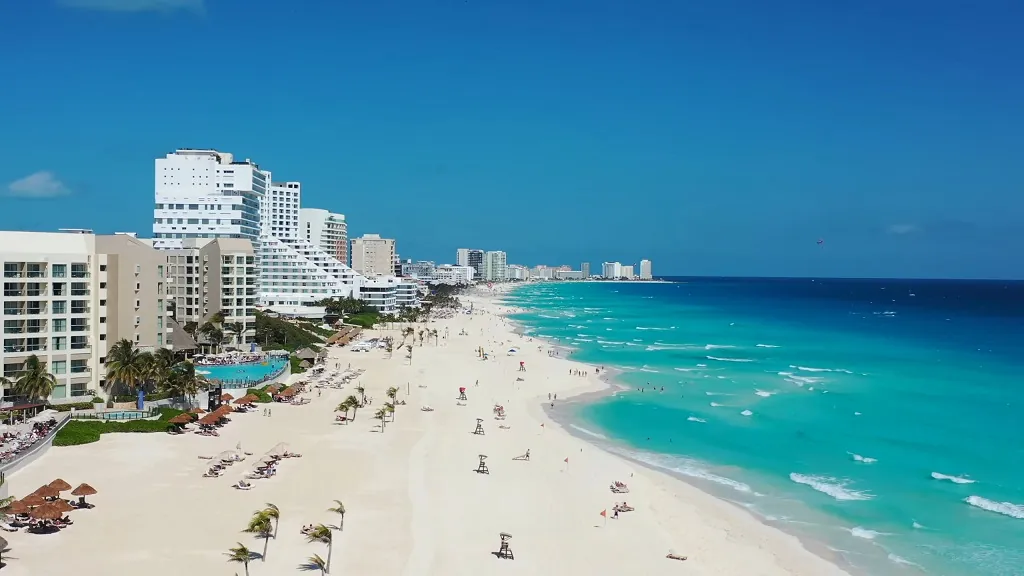
Travel advisories in 2025 place Cancun in Level 2: Exercise Increased Caution, the same level given to countries like Spain or France.
Most violent crime in Cancun happens outside tourist zones and usually involves organized groups targeting each other, not tourists.
Officials continue to say that Cancun remains one of the safest areas in Mexico for international visitors.
Authorities in Cancun have added police patrols, upgraded hotel security, and deployed National Guard units across major tourist areas.
The Hotel Zone, Isla Mujeres, and Puerto Morelos show the lowest crime rates in the region. Surveillance cameras cover most busy streets, and resorts cooperate directly with law enforcement.
Most tourist incidents involve:
- Pickpocketing in markets or buses
- Overcharging by taxis
- Fake tour sales on beaches
- Isolated late-night bar disputes
No-go zones for tourists remain on the outskirts of downtown and in residential zones far from resorts. These areas hold no tourist attractions or legitimate reasons to visit.
Cancun draws more than 10 million visitors per year, and the overwhelming majority return home without trouble.
Still, tourists must stay alert and follow safety basics like they would in any other major city.
Common Scams Tourists Face in Cancun
Scams in Cancun target visitors in areas with high foot traffic. The most common ones are non-violent but can cost you time, money, or both.
Scammers often pose as helpers, vendors, or transportation workers.
Most Reported Tourist Scams
| Scam Type | Where It Happens | How to Avoid |
|---|---|---|
| Fake Tour Packages | Beaches, sidewalks | Book only through licensed shops |
| Taxi Overcharges | Hotel Zone, downtown | Confirm fare before boarding |
| ATM Skimming | Street ATMs | Use machines inside banks |
| Timeshare Traps | Airports, malls | Refuse offers for “free” tours |
| Credit Card Cloning | Bars, small shops | Watch card use at all times |
- Do not accept help with bags or directions unless you asked for it
- Ignore street vendors offering tours without ID or uniforms
- Decline free offers tied to timeshare meetings
- Keep your credit card in sight or use cash in small shops
- Use hotel or bank ATMs, not outdoor machines
Where It’s Safe and Where Tourists Face Risk
Cancun’s safety map breaks down clearly between tourist zones and local districts. Tourists who stay near resorts, beaches, and main attractions rarely face serious risk.
Those who wander into unknown neighborhoods after dark face more uncertainty.
Safest Areas for Tourists
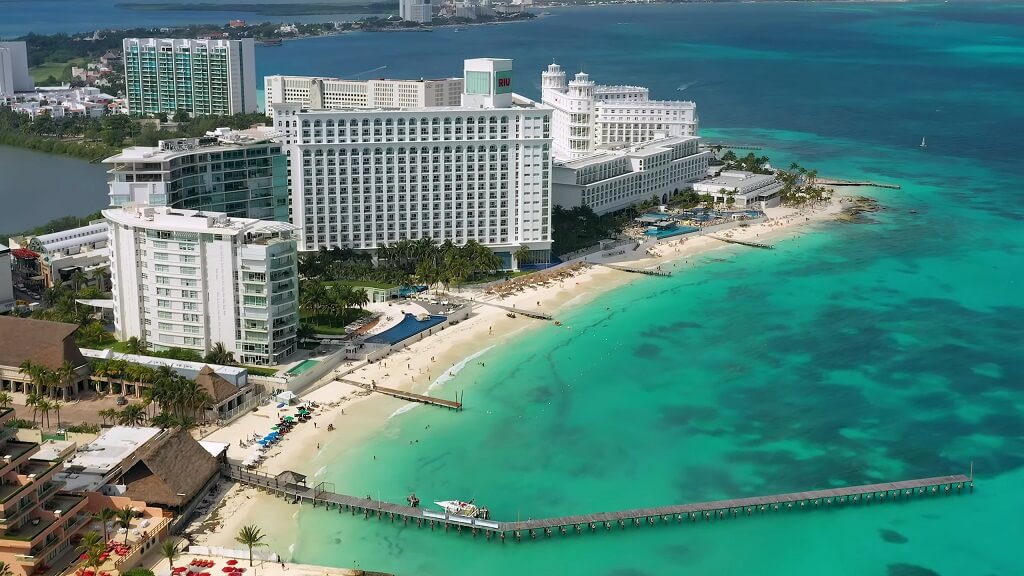
- Hotel Zone (Zona Hotelera): Strong police presence, regular patrols, high-end resort security
- Isla Mujeres: Small island with low crime, known for family-friendly settings
- Puerto Morelos: Peaceful beach town south of Cancun with minimal tourist incidents
- La Isla Shopping Village & Marina Town Center: Monitored areas with active staff and secure taxi zones
Riskier Zones to Avoid
- Alfredo V. Bonfil: A suburb near the airport with rising crime levels
- Outskirts of Downtown: Especially after dark, with fewer patrols and more local disputes
- Poorly lit alleys and side streets: Risk increases when isolated and far from main roads
- Abandoned beaches: Few people, no lifeguards, and less surveillance
These zones have crime rates as high as most dangerous areas in Brazil.
Tourist-Friendly Downtown Spots (Safe During Daytime)
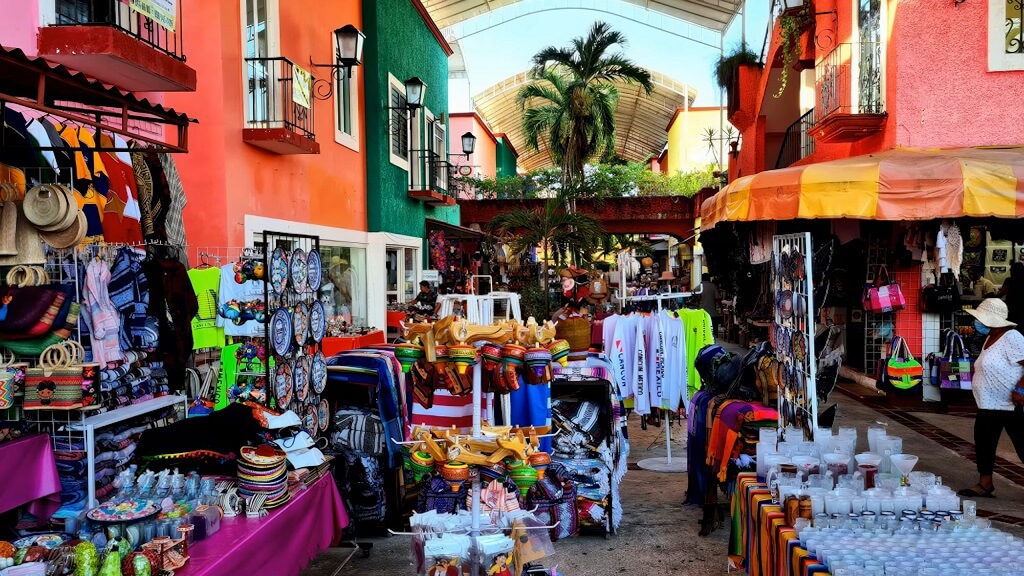
- Parque Las Palapas
- Mercado 28
- Avenida Tulum (stay on main street)
If you explore downtown, do it during daylight hours and stick to visible, well-trafficked routes. Use hotel taxis to return safely at night.
Laws That Can Cause Problems for Tourists
Tourists often run into trouble in Cancun not because of crime, but due to laws they did not know existed.
Local police enforce certain rules strictly, and tourists who ignore them may face fines or worse. Many of these laws differ from those in the US, Canada, or Europe.
Strict Local Laws Tourists Must Know
View this post on Instagram
- Public Drinking Is Illegal – Drinking alcohol on streets, beaches (outside resorts), or public walkways can lead to fines. Open containers are banned unless you are in a licensed venue.
- Marijuana and Other Drugs Are Illegal – Mexico does not allow personal use of marijuana. Tourists caught with drugs often end up jailed or extorted. The risk of cartel involvement also increases if you seek illegal substances.
- Vaping Products Are Banned – Electronic cigarettes and vape pens are prohibited in Mexico, even for personal use. Customs may seize them at the airport.
- No Firearms or Ammunition – Even a single bullet or empty magazine in your luggage is a criminal offense. Tourists have been detained for unintentionally carrying gun parts or ammo.
- Smoking Is Limited – Smoking is now banned in most public spaces, including beaches, parks, and restaurant patios. Only smoke in clearly marked zones.
Other popular destinations around the world are also known for having strict laws related to tourists, such as the UAE, where fines are much higher compared to Mexico.
Other Legal Issues That Affect Tourists
- Bribing a police officer is a serious crime
- Public urination or indecent behavior is prosecuted
- Loud disorderly conduct may result in detention
- Political protests are off-limits to foreign visitors
Tourists who violate Mexican law can face detention, fines, or deportation. Police have broad discretion to arrest foreigners for actions that may seem minor at home.
How Safe It Is to Use Taxis, Uber, and Buses
Transportation safety in Cancun is a major concern for visitors. Each option-taxis, Uber, buses, or car rentals-comes with specific risks and benefits.
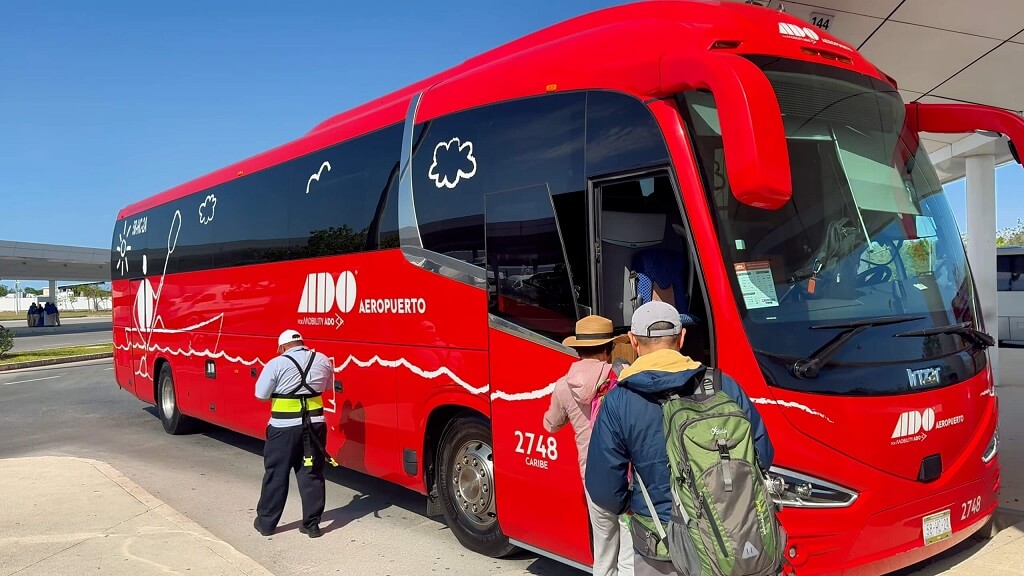
Choosing the safest method often depends on location, time of day, and travel style.
Taxis: Convenient but Often Overpriced
- Do not expect a meter; most taxis negotiate prices
- Always agree on the fare before entering
- Avoid flagging random taxis at night-use hotel stands or apps
- Taxis are generally safe, but aggressive pricing and occasional scams occur
Uber: Safer in Most Cases, but Not Problem-Free
- Uber works in Cancun, but not always at airports or near taxi unions
- Tensions between taxi drivers and Uber drivers still exist in some areas
- Use Uber discreetly and avoid pickup points near taxi queues
- Uber offers price transparency and driver tracking
Public Buses: Affordable and Reliable in Tourist Areas
- Routes R1 and R2 run through the Hotel Zone and downtown
- Buses are frequent, safe, and used by locals and tourists
- Expect fast drivers and loud music, but low safety concerns
- Avoid very late-night buses if traveling alone
Weather Dangers Tourists Should Know Before Going
Cancun’s weather is a key part of its appeal, but it also poses risks at certain times of year. Heat, storms, and water hazards can impact your plans and your safety if you are unprepared.
Heat and Sun Exposure
Cancun temperatures reach high levels, especially in April through August. Tourists face:
- Heat exhaustion from walking too long without shade
- Sunburns due to extreme UV levels
- Dehydration without noticing early symptoms
Tips to avoid heat trouble:
- Drink water often, not just when thirsty
- Use reef-safe sunscreen and reapply regularly
- Take midday breaks indoors or in shaded areas
Ocean Hazards
The sea looks calm, but danger may not be visible.
- Rip currents are common on eastern beaches
- Beach flag systems warn swimmers; obey them
- Red flag = no swimming
- Black flag = extreme danger
- Green flag = safe to enter
- No flag = ask staff before entering
Do not swim at night or in isolated areas with no lifeguards. Most drownings occur when warnings are ignored.
Hurricane Season in Cancun
- June to November is hurricane season
- August to October is the highest-risk window
- Tropical storms can cause floods and cancel flights
Safety Tips for Solo Travelers, Families, and Groups
Different travelers face different risks. A solo visitor will need different habits than a family with children or a group of friends. Cancun offers safe options for each, but the right approach makes the biggest difference.
Solo Travelers
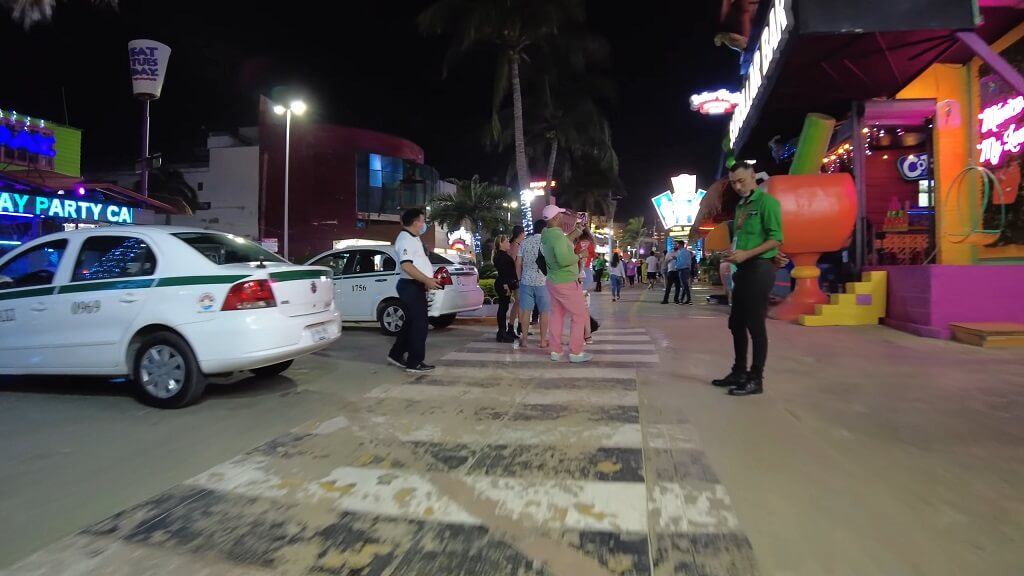
Solo travelers face higher risks when isolated, especially at night.
Do:
- Use rideshare or hotel-arranged taxis after dark
- Stay in well-reviewed hotels or hostels in the Hotel Zone
- Keep phone charged and share location with someone you trust
- Use lockers and safes for all valuables
Avoid:
- Wandering unfamiliar streets alone after midnight
- Accepting drinks from strangers at bars
- Leaving clubs without a clear transport plan
Families
Families with children find Cancun accommodating, but extra care is needed.
- Choose resorts with gated access, security, and lifeguards
- Use sunscreen, shade, and hydration to avoid heat-related issues
- Supervise children near water at all times
- Stay off balconies unless railings are tall and secure
- Visit tourist sites early in the day to avoid large crowds
Child safety in Cancun is strong at resorts and beaches with regular patrols. Avoid exposing children to heavy nightlife zones.
Groups of Friends
Groups are safer by default but can lose awareness.
- Always use a buddy system, especially during nightlife outings
- Assign one person to stay sober and alert
- Agree on meeting spots and contact plans before going out
- Keep an eye on drinks and on each other
- Avoid confrontations with locals or other tourists
What Tourists Should Keep in Mind Before Visiting Cancun
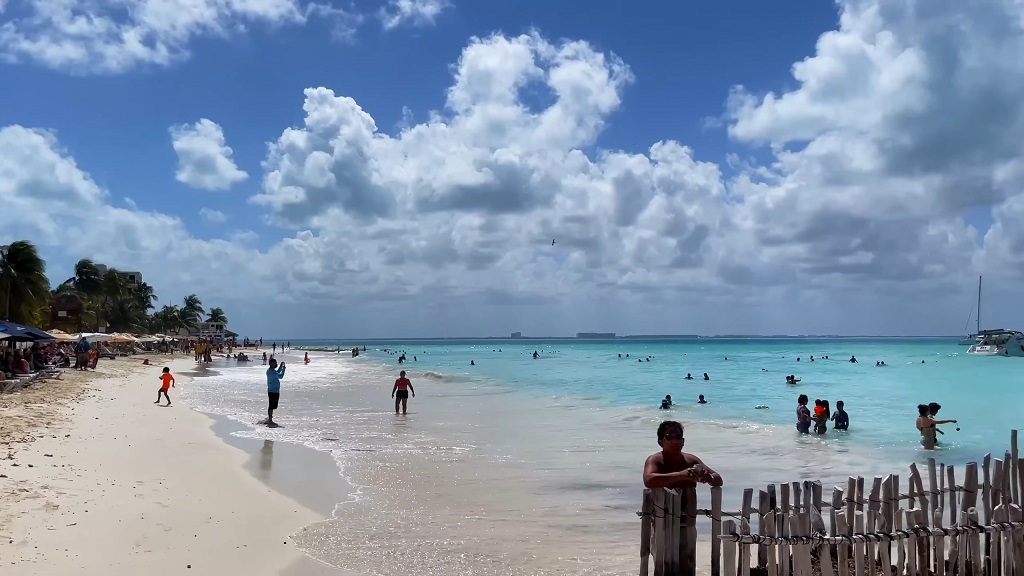
Travelers who know what to expect are more likely to stay safe. The key points apply to every tourist, no matter their age, group size, or budget.
- Stay in known tourist areas like the Hotel Zone or Isla Mujeres
- Book tours and transport with trusted providers
- Avoid public drunkenness or anything that draws police attention
- Never agree to street deals for drugs, tours, or currency exchange
- Carry passport copies and required documents at all times
- Check local laws on drinking, smoking, and public behavior
- Read weather alerts if visiting between June and November
Safe vs Risky Tourist Habits
| Action | Safe | Risky |
|---|---|---|
| Using hotel taxi service | ✔️ | |
| Walking solo after midnight downtown | ❌ | |
| Booking tours at hotel front desk | ✔️ | |
| Drinking alcohol on a public beach | ❌ (illegal) | |
| Swimming under red flag conditions | ❌ | |
| Leaving drinks unattended in clubs | ❌ | |
| Taking a marked taxi without agreeing fare | ❌ (can lead to overcharge) |
Following local rules, staying in secure areas, and using good judgment makes the difference.
FAQs
The Bottom Line
Cancun is safe for tourists in 2025-if you follow the rules, stay in secure areas, and use common sense.
The Hotel Zone, major resorts, and tour routes remain well protected. Scams and petty crime still happen, but they are easy to avoid when you know what to look for.
Respect local laws. Stay alert in crowded places. Use trusted transportation.
Most visitors enjoy Cancun without any trouble. You can too-if you travel smart, stay aware, and plan ahead.
Read Next – Is it Safe to Travel to Dominican Republic?





